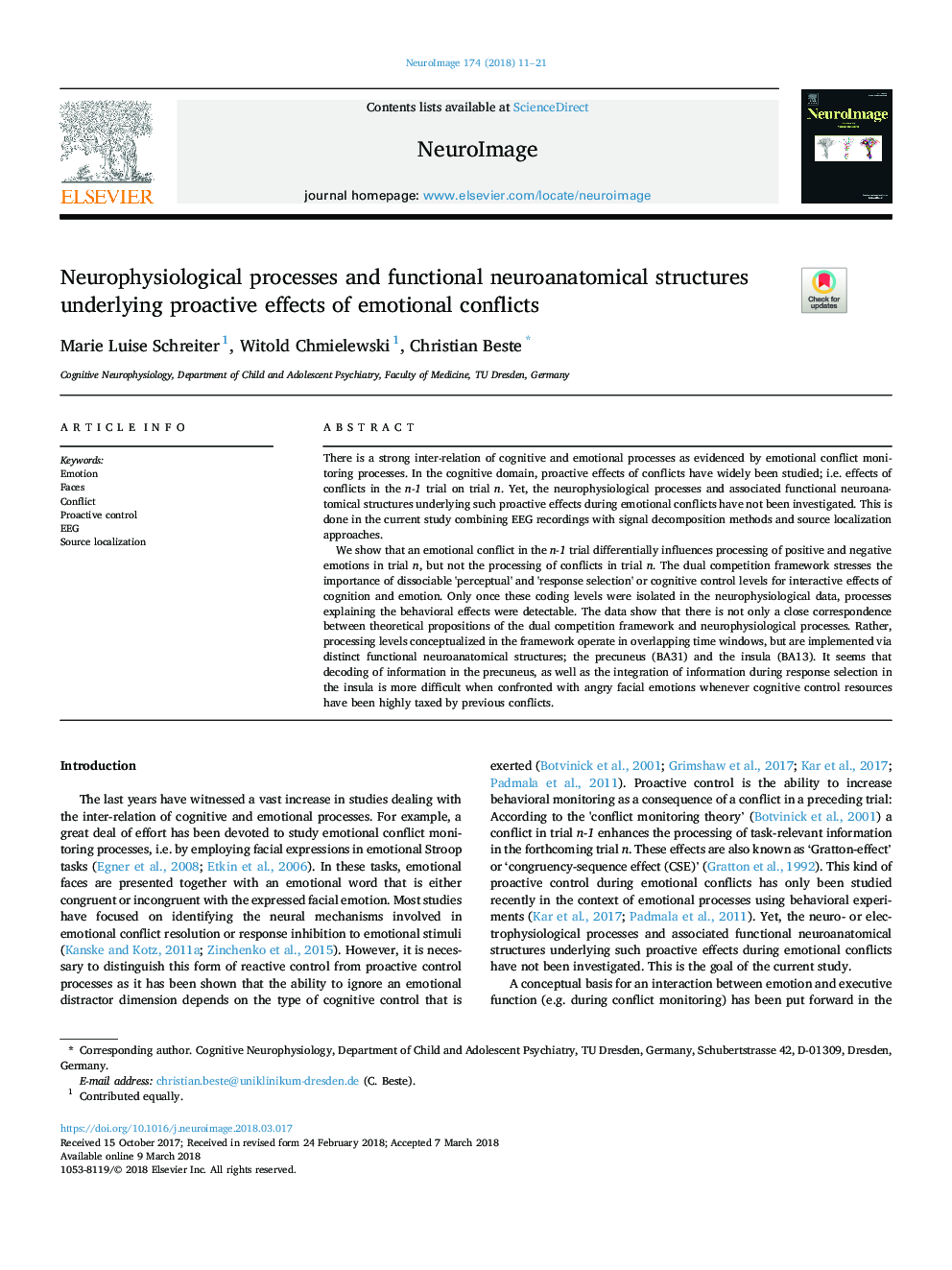| Article ID | Journal | Published Year | Pages | File Type |
|---|---|---|---|---|
| 8686898 | NeuroImage | 2018 | 11 Pages |
Abstract
We show that an emotional conflict in the n-1 trial differentially influences processing of positive and negative emotions in trial n, but not the processing of conflicts in trial n. The dual competition framework stresses the importance of dissociable 'perceptual' and 'response selection' or cognitive control levels for interactive effects of cognition and emotion. Only once these coding levels were isolated in the neurophysiological data, processes explaining the behavioral effects were detectable. The data show that there is not only a close correspondence between theoretical propositions of the dual competition framework and neurophysiological processes. Rather, processing levels conceptualized in the framework operate in overlapping time windows, but are implemented via distinct functional neuroanatomical structures; the precuneus (BA31) and the insula (BA13). It seems that decoding of information in the precuneus, as well as the integration of information during response selection in the insula is more difficult when confronted with angry facial emotions whenever cognitive control resources have been highly taxed by previous conflicts.
Related Topics
Life Sciences
Neuroscience
Cognitive Neuroscience
Authors
Marie Luise Schreiter, Witold Chmielewski, Christian Beste,
